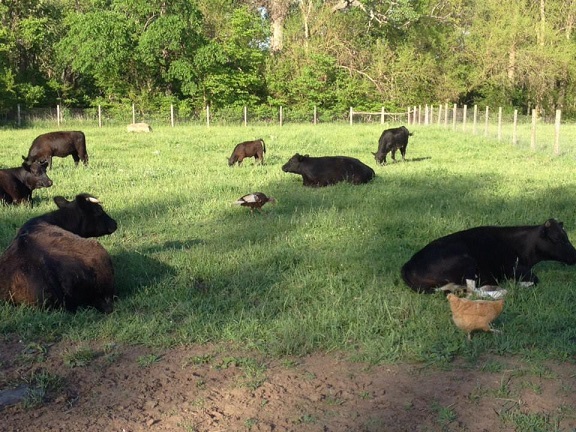by Michell Spoden
My guest today is Sharon Sachs from Women Farm. Sachs, who is in her mid 60s, is the Managing Owner of Women Farm, LLC and she has interesting information regarding the role of women in today’s farming in the US, particularly in Ohio.
Michell: How did woman farm begin?
Sharon: Women Farm integrates my birth into a third-generation farm family with more than 25 years of meaningful roles through which I made a difference in the careers of individuals and the businesses and communities in which they lived. I was raised by dedicated, successful dairy farmers and around a large extended family of dairy and grain farmers and market gardeners. I began working with Ohio farmers in 2004 and by 2008 became a self-directed advocate, service provider and spokesperson for Ohio women entering or engaged in sustainable and alternative agriculture. As a pioneer of career management programs for women, I knew they benefited greatly from specialized services, moral support, and new relationships with women in similar situations. I imagined this would also be true for women in production agriculture. Generally, Ohio farmer-serving organizations didn’t see the need for this approach at the time I was promoting it. Women Farm started in 2011 when one other woman became a partner is establishing Women Farm. In 2014 we expanded the strategic management of Women Farm to 10 women including 9 Ohio women farmers and we attracted 24 non-capital investors.
Michell: Why woman?
Sharon: To focus on women farm operators is to focus on Ohio farmland preservation, access to healthy food, and on food security for local communities. In Ohio about 12 percent of Ohio’s almost 75,500 farms and 16 percent of Ohio’s 687 organic farms are led by a woman principal operator, almost 9 of 10 of whom are full owners of their farms. We know that almost 4 out of 10 Ohio farms have at least one operator who is a woman and that almost 30 percent of Ohio’s farm operators are women. This means that farm management is an occupation non-traditional to women and that more than 31,000 women have a direct impact on almost 30,000 Ohio farms.
Michell: How long has woman farm been in existence?
Sharon: Women Farm was established in 2011 and by 2013, we demonstrated our vision for specialized services to women who are beginning to farm or wanting to farm better, we gave voice to new and experienced women farmers through our web site, the public media, and at national, state, and local conferences, and we demonstrated the value of women farmers by expanding their skills and strengthening their businesses; featuring women as presenters, mentors, and tour hosts; instigating and supporting public recognition of individual women farmers; and seeking their opinions and preferences.
Michell: How does your organization work?
Sharon: Women Farm creates opportunities for Ohio women farmers to learn with and from one another how to operate sustainable farm businesses that grow food for local communities. We offer networking, mentoring, facilitated discussions, and consulting services. We also provide web-based and customized information and referral services.
Michell: What do you think is the best aspect of woman farm?
Sharon: Women Farm is committed to establishing relationships with and among women farmers, and to demonstrating the importance of women farmers to the future of Ohio agriculture.
Michell: So more woman are farming, why do you think that is? Do you think the number will grow in the near future?
Sharon: The last (2012) USDA Census of Agriculture reports a 5 percent reduction in women as principal operators of Ohio farms and a 10 percent reduction in farmland acres of Ohio’s women principal operators. I speculate that this trend mostly reflects widows and other single women who sell or pass on the farm to their children. Data is yet to be released on the total number of female farm operators. The future of women in production agriculture, I think, is directly related to small and urban farms, direct marketing and the local food movement, new farmers both younger and older. I look forward to analyzing for other trends when more data is available.
Michell: Why do you think farming is good for a community? What are the most popular things to grow in Ohio?
Sharon: Ohio has a history of commodity crops conventionally grown and of export agriculture. The Ag Census data reports that Ohio women principal operators when compared to all Ohio farmers are far less likely run oilseed and grain farms, slightly more likely to operate sheep and goat farms, and significantly more likely to run horse farms. Ohio also has an expanding involvement in organic agriculture and direct sales to local markets. Women are a key resource in bringing healthy food to their local communities.
Michell: What is the best advice you can give anyone who wants to start a farm?
Sharon: Dream big. Be courageous. Talk to others who started a farm like you imagine. Be serious. Get real. It takes time, money, hard labor, and it is a huge advantage to have a network of supportive others.
Michell: Please share with our viewers what some of the future goals of woman farm are?
Sharon: Get to know more about an increasing number of our subscribers. Work hard to be responsive to their unmet needs and their emerging priorities. Provide venues and strong encouragement so women farmers speak out, stand up, and are a strong voice and transparent face of Ohio alternative agriculture.
Follow Women Farm on Facebook: https://www.facebook.com/pages/Women-Farm-Ohio/201443303266658.
About the Interviewer
Michell Spoden is the author of Stricken Yet Crowned and is also pursuing a transitional housing project for woman with an agricultural aspect. She has a degree in Business Science Administration and is finishing her bachelor’s in Project Management.


